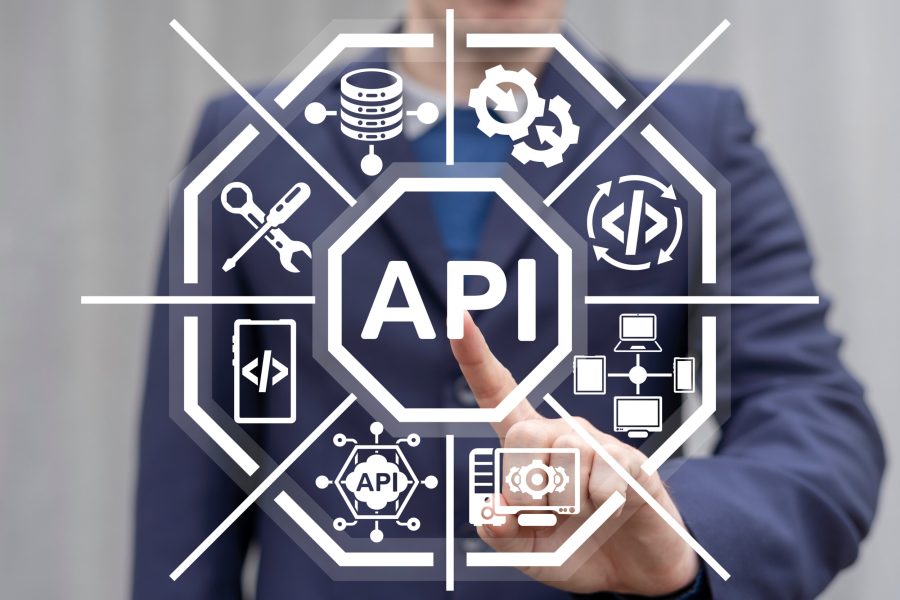Artificial Intelligence (AI) is changing how businesses manage customer relationships. By automating tasks like lead generation and qualification, AI helps sales teams work smarter and more efficiently. This article explores how AI can enhance customer interactions, improve sales processes, and prepare businesses for future challenges.
Key Takeaways
AI automates repetitive tasks, freeing up sales reps to focus on building relationships.
Using predictive analytics, AI helps identify the best leads to pursue, improving sales efficiency.
AI tools can analyze customer interactions to provide personalized recommendations.
Chatbots powered by AI can engage leads 24/7, qualifying them in real-time.
AI enhances data management, making it easier for sales teams to access valuable insights.
The Role of AI in Modern CRM Systems
Understanding AI in CRM
Artificial Intelligence (AI) is changing how businesses manage their customer relationships. AI significantly enhances CRM systems by automating repetitive tasks, offering predictive analytics, and facilitating more meaningful interactions with customers. This means that sales teams can focus more on building relationships rather than getting bogged down in administrative work.
Key Benefits of AI Integration
Increased Efficiency: AI automates routine tasks, allowing sales teams to spend more time on high-value activities.
Better Lead Identification: AI can analyze customer data to identify the most promising leads, helping sales teams prioritize their efforts.
Enhanced Personalization: AI enables businesses to tailor their communications to individual customer preferences, improving engagement.
Challenges in AI Adoption
While AI offers many benefits, there are challenges to consider:
Data Quality: AI systems require clean and organized data to function effectively.
Training Needs: Sales teams may need training to understand and utilize AI tools properly.
Integration Issues: Ensuring that AI tools work well with existing systems can be complex.
AI is not just a tool for automation; it’s a powerful ally in enhancing the human connection in sales. By providing personalized training and continuous feedback, AI helps sales teams operate more efficiently and effectively.
Automating Lead Generation with AI
AI-Powered Lead Scoring
AI can help businesses identify which leads are most likely to convert. By analyzing data from past interactions, AI tools can assign scores to leads based on their potential. This means sales teams can focus on the highest-quality leads first. Using AI for lead scoring can significantly improve conversion rates.
Predictive Analytics for Lead Generation
Predictive analytics uses historical data to forecast future outcomes. This means businesses can anticipate which leads are more likely to engage. By leveraging AI, companies can create targeted marketing strategies that resonate with potential customers. Here are some key benefits of predictive analytics:
Increased efficiency in targeting leads
Better understanding of customer behavior
Enhanced marketing strategies based on data insights
Real-Time Data Analysis
AI can analyze data in real-time, allowing businesses to respond quickly to changes in customer behavior. This means that as soon as a lead shows interest, the sales team can act immediately. Here’s how real-time data analysis can help:
Immediate response to customer inquiries
Tailored marketing messages based on current trends
Improved lead nurturing through timely follow-ups
AI is transforming lead generation by making processes faster and smarter. By automating these tasks, businesses can focus on building relationships and closing deals.
In summary, automating lead generation with AI not only streamlines the process but also enhances the quality of leads, making it easier for sales teams to succeed. If you want to use AI for lead generation, learn 10 tactics on how to leverage AI-powered tools and best practices for lead generation to boost revenue.
Enhancing Lead Qualification through AI
AI-Driven Lead Qualification
AI is changing how businesses qualify leads. By using advanced algorithms, companies can analyze data to determine which leads are most likely to convert. This means sales teams can focus on the best opportunities. Here are some key benefits of AI-driven lead qualification:
Faster Identification: AI can quickly sift through large amounts of data to find promising leads.
Improved Accuracy: AI reduces human error by providing data-driven insights.
Better Resource Allocation: Sales teams can spend more time on high-quality leads.
Chatbots for Lead Engagement
AI-powered chatbots are available 24/7, engaging with potential customers and gathering essential information. These chatbots can:
Answer common questions instantly.
Collect lead qualification data, such as budget and needs.
Route high-quality leads to the right sales representatives.
Automated Data Entry and Management
AI can automate routine tasks like data entry, which saves time and reduces errors. This allows sales teams to:
Focus on building relationships.
Spend less time on administrative tasks.
Ensure that lead information is always up-to-date.
AI tools are revolutionizing the sales process by providing sales teams with the resources they need to succeed. From lead generation to customer engagement, AI is making it easier for sales teams to achieve their goals.
By leveraging AI in lead qualification, businesses can enhance their sales processes and improve overall efficiency. This not only leads to higher conversion rates but also fosters better customer relationships.
Personalizing Customer Interactions Using AI

Hyper-Personalization Techniques
AI is changing how businesses connect with their customers. By using AI, companies can create unique experiences for each customer. This means understanding what each person likes and tailoring messages just for them. Here are some ways AI helps with personalization:
Customer Segmentation: AI can group customers based on their behavior and preferences, allowing businesses to send targeted messages.
Dynamic Content Creation: AI can generate personalized content for emails and websites, making each interaction feel special.
Predictive Analytics: AI can predict what customers might want next, helping businesses stay one step ahead.
AI-Driven Customer Segmentation
AI can analyze large amounts of data to divide customers into different groups. This helps businesses understand their needs better. For example, a clothing store might send different promotions to men and women. This targeted approach can lead to higher engagement and sales.
Case Studies of Successful AI Personalization
Many companies have successfully used AI to enhance customer interactions. For instance, a popular online retailer used AI to analyze customer data and send personalized recommendations. This led to a significant increase in sales and customer satisfaction. Another company used AI to create tailored marketing campaigns, resulting in a 30% boost in engagement.
AI is not just about automation; it’s about making every customer feel valued and understood. By leveraging AI, businesses can create meaningful connections that drive loyalty and satisfaction.
Conclusion
In summary, AI is revolutionizing how businesses interact with their customers. By personalizing experiences, companies can build stronger relationships and improve overall satisfaction. As AI technology continues to evolve, the potential for even more personalized interactions will only grow.
Improving Sales Efficiency with AI
Automating Routine Sales Tasks
AI can take care of repetitive tasks like scheduling meetings, sending follow-up emails, and managing customer inquiries. This allows sales reps to focus on more important activities, such as building relationships and closing deals. By automating these tasks, sales teams can save time and increase productivity.
Intelligent Call Routing
AI can also optimize call routing by analyzing customer data to match callers with the most suitable sales representatives. This ensures that customers are connected with agents who are best equipped to address their needs, leading to more effective and efficient sales interactions.
Real-Time Feedback and Personalization
AI can provide real-time feedback during sales calls, allowing sales reps to adjust their approach instantly. This helps in addressing customer concerns more effectively, leading to higher satisfaction and conversion rates. Additionally, AI can analyze customer data to offer personalized recommendations, making interactions more engaging and relevant.
AI tools are revolutionizing the sales process by providing sales teams with the resources they need to succeed. From lead generation to customer engagement, AI is making it easier for sales teams to achieve their goals.
Benefit | Impact |
|---|---|
Increased Productivity | Up to 30% more time for selling |
Improved Customer Satisfaction | Up to 40% higher satisfaction rates |
Enhanced Decision Making | Data-driven insights for better choices |
Leveraging AI for Better Sales Insights
Enhanced Customer Insights
AI can help businesses understand their customers better. By analyzing data from various sources, AI uncovers valuable insights about customer preferences and behaviors. This means sales teams can make smarter decisions based on real information rather than guesswork. Here are some key benefits of using AI for customer insights:
Improved targeting: AI identifies which customers are most likely to buy.
Personalized marketing: Tailors messages to individual customer needs.
Faster decision-making: Provides real-time data for quick adjustments.
Sentiment Analysis for Sales
Sentiment analysis is a powerful tool that AI uses to gauge how customers feel about a product or service. By analyzing customer interactions, AI can determine whether the sentiment is positive, negative, or neutral. This helps sales teams:
Adjust their approach based on customer feelings.
Identify potential issues before they escalate.
Enhance customer satisfaction by addressing concerns promptly.
Data-Driven Decision Making
AI enables sales teams to make decisions based on data rather than intuition. By analyzing historical data, AI can predict future trends and customer behaviors. This leads to:
Better forecasting: Anticipating sales trends and customer needs.
Optimized strategies: Focusing on high-potential leads.
Increased efficiency: Reducing time spent on less promising opportunities.
AI is transforming how sales teams operate by providing insights that were previously hard to obtain. By leveraging these insights, businesses can enhance their sales strategies and improve overall performance.
Conclusion
In summary, leveraging AI for better sales insights can significantly enhance a company’s ability to understand and engage with customers. By utilizing AI tools, businesses can improve their sales processes, leading to higher conversion rates and customer satisfaction. The power of AI in sales is undeniable, and those who embrace it will likely see substantial benefits.
Future Trends in AI for CRM
Emerging AI Technologies
The landscape of AI in CRM is rapidly evolving. New technologies are emerging that will enhance how businesses interact with customers. Some of these include:
Natural Language Processing (NLP): This allows systems to understand and respond to human language more effectively.
Machine Learning: Algorithms that learn from data to improve over time, making predictions more accurate.
Robotic Process Automation (RPA): Automating repetitive tasks to free up human resources for more complex activities.
Ethical Considerations in AI
As AI becomes more integrated into CRM systems, ethical concerns are rising. Businesses must consider:
Data Privacy: Protecting customer information is crucial.
Bias in Algorithms: Ensuring fairness in AI decision-making processes.
Transparency: Customers should know how their data is used.
Future Predictions for AI in CRM
Looking ahead, we can expect:
Increased Personalization: AI will enable even more tailored customer experiences, enhancing satisfaction.
Greater Automation: Routine tasks will be handled by AI, allowing sales teams to focus on building relationships.
Enhanced Analytics: AI will provide deeper insights into customer behavior, helping businesses make informed decisions.
The future of AI in CRM is bright, with the potential to transform customer interactions and drive business success. Embracing these trends will be essential for staying competitive in the market.
Highlight
AI is revolutionizing the sales process by automating routine tasks, enhancing efficiency, and providing valuable insights. This transformation is crucial for understanding customer needs and predicting sales trends.
As we look ahead, the role of AI in Customer Relationship Management (CRM) is set to grow significantly. Businesses will increasingly rely on AI to understand their customers better, automate tasks, and enhance their marketing strategies. This shift will not only improve customer engagement but also drive sales growth. If you want to stay ahead in this evolving landscape, visit our website for a free strategy session and discover how AI can transform your business!
Conclusion
AI is changing how sales teams work, making things faster and smarter. By using AI, salespeople can understand their customers better and guess what they might need next. This helps them sell more and keep customers happy. As technology keeps improving, AI’s role in sales will grow even more. Companies that use AI will be ahead of their competitors and ready for what comes next. So, if you want to boost your sales, now is the perfect time to start using AI.
Frequently Asked Questions
What is AI in CRM?
AI in CRM means using smart technology to help businesses manage customer relationships better. It analyzes data to improve how companies interact with customers.
How does AI help with lead generation?
AI helps find potential customers by analyzing past data and predicting who might be interested in a product or service. This makes it easier for sales teams to focus on the best leads.
What are the benefits of using AI in sales?
Using AI in sales can save time, improve accuracy, and enhance customer interactions. It helps sales teams work more efficiently by automating routine tasks.
Can AI personalize customer experiences?
Yes, AI can analyze customer data to create personalized messages and recommendations, making each customer feel valued.
What tools use AI in sales?
Common AI tools in sales include chatbots, predictive analytics software, and customer relationship management (CRM) systems that have AI features.
Are there challenges to using AI in sales?
Yes, challenges include the cost of setting it up, training staff to use it effectively, and ensuring data privacy and security.










